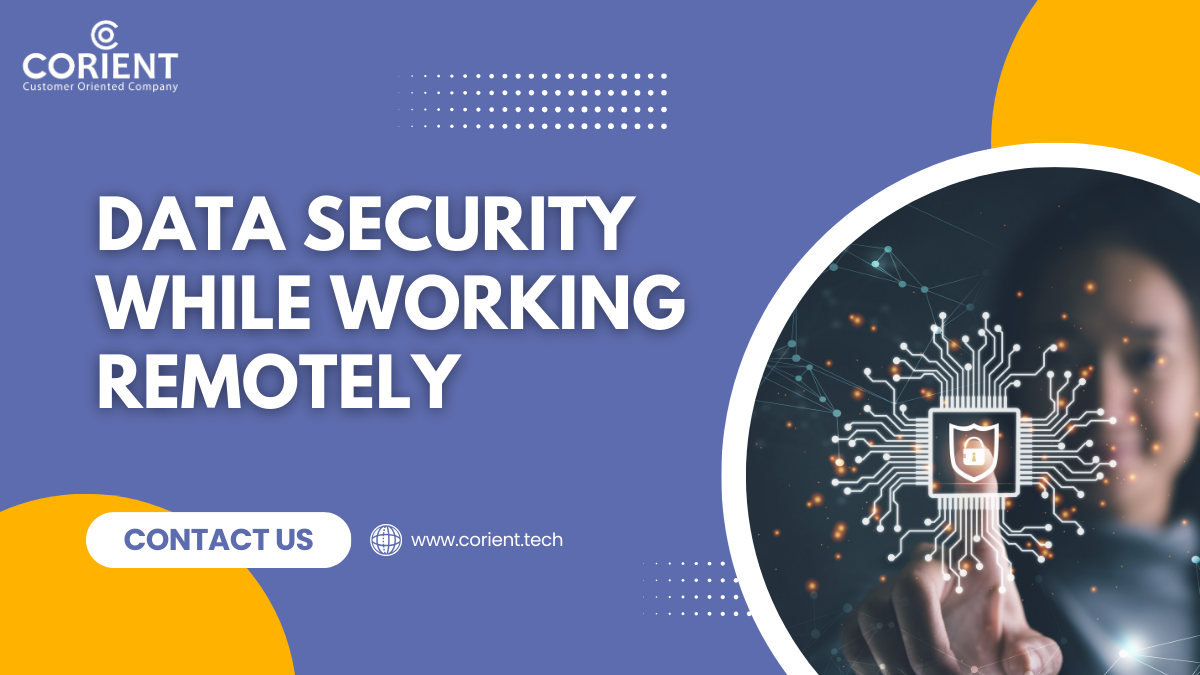Working remotely became more popular during the pandemic. While this is beneficial to most, one problem with it is the vulnerability of data for remote workers. When data is unsecured, the data from the worker and company are exposed to cybersecurity threats. For instance, cybercriminals can use your data to hack into your system, steal your information, and use it for malicious activities.
With such, you need to employ the following cybersecurity measures to protect and secure your data:
1. Install Antivirus
One common way to strengthen data security while working remotely is having antivirus software. With this software, you can protect sensitive data and fix security flaws in your system.
Not only that, but it works automatically. This means that you only have to install it, and it would automatically detect cyber threats like phishing attacks, Trojans, spyware, and malware.
That being said, you can ensure that all your data, including your company’s data, aren’t prone to cybersecurity threats.
On top of that, you can keep your device’s performance optimum since it can prevent malicious and unwanted actions from altering or interfering with your device. Keeping your device at its best performance is essential when working remotely as it affects efficiency and productivity.
2. Restrict Copying Data Into Local Machines
Another data security measure for virtual workers is to restrict copying data into local computers. This is especially important if you’re sending files containing sensitive data to other people, like colleagues or potential clients. With such, you can set access rights depending on who the receiver is.
For instance, you may restrict file copy actions while allowing read rights. Doing this can prevent data leaks that may occur when a file is copied to different machines.
However, you may need to use some tool or software to track files that require copy data restrictions. If you’re unfamiliar with this, you can always consult technology experts like Corient and others. These tech experts are always in the loop with the latest technologies, and they can even suggest what tools you can use based on your needs.
3. Limit Usage Of Cloud-based Storage Solution
While cloud-based storage solutions like Google Drive, Dropbox, OneDrive, and others offer easy access to files, you’re exposing your data to risks. That’s because when using cloud-based storage, you’re not in control of your data. You don’t know what and how your data is being kept and secured. This can become a problem, especially if persistent hackers get into your cloud storage.
And you know what might happen when hackers get a hold of critical information. With such, it’s best to limit the use of these storage solutions when transmitting sensitive data.
4. Control Email Usage
If you have a working email provided by your company, then you should use it. These emails are usually paid, which means they have better security than the free ones. However, you should only use it for work purposes.
It’s best not to merge your personal affairs with your business email. This means you shouldn’t use your company email to subscribe to personal needs. You may also have to restrict yourself from using such email outside working hours. By doing these things, you can protect both personal and business data from cybersecurity threats.
For instance, your company may access your business email containing your personal information. Although they’re not allowed to access your email, it’s still best to be wary of this.
On the other hand, you may introduce dangerous viruses to your system through your business email. This, in turn, may allow unauthorized individuals to access your company’s data. Or they may use your email to jeopardize your organization by sending offensive messages to clients or colleagues.
5. Utilize A Secured VPN Tunnel
Since internet usage is a lifeblood of a remote worker, you may want to strengthen it by using a virtual private network (VPN). That’s because a VPN creates a secure tunnel between a server and your computer.
On top of that, you can boost your security because all information is encrypted when you use a VPN. This is more vital when you’re sending or accessing critical data. When someone intercepts your network, all they can see is gibberish information since data is encrypted. As a result, they’ll have a hard time deciphering such data.
6. Follow Internet Restriction Policy
While this is most familiar to employees working on-site or inside the company’s establishments, an internet restriction policy can also be applied when working remotely. This means you have to be responsible when accessing the internet.
You may want to limit using the internet for illegal or inappropriate use to endanger any data you have on your device. For instance, downloading free movies from an unfamiliar website may seem unharmful.
However, if you’re not familiar with viruses attached to downloadables, you’re more likely to infect your device. As a result, they can crawl data from it, depending on the virus they’ve integrated into the free downloadables.
Or when you’re using your company device at home, you shouldn’t use it to access the internet for personal activities. That way, you can avoid potentially risking whatever’s stored in that device.
7. Try Proctoring
Lastly, you may want to try remote proctoring, especially if you’re handling a virtual team. While proctoring is most popular in the academe to monitor online exams, virtual employees can also use this. Generally, remote proctoring refers to viewing the shared screen of the other user to monitor their activities.
When applied to remote working, there are apps or software that allow you to monitor your team. This software records the user’s screen and activities to detect unnecessary activities that may pose a risk to the company’s data.
However, you may have to monitor your team in real-time to prevent these risks immediately. But if not, you can use the recorded ones to track who might have caused such troubles.
The thing is, you can instill discipline in each user since they’re aware that everything they do is recorded. Set consequences when they don’t comply with your rules, like the internet restriction policy, to make it more compelling. That way, you can lessen the chances of exposing your data to potential harm.
The Bottom Line
Working remotely can both be fun and dangerous. You may be unconsciously attracting cybersecurity threats if you don’t know how to keep your data secure. But when you apply the tips above or work with a reputable tech expert like Corient, you can work with confidence and security.
No more worries about potential risks because you know that you have strong data security.

